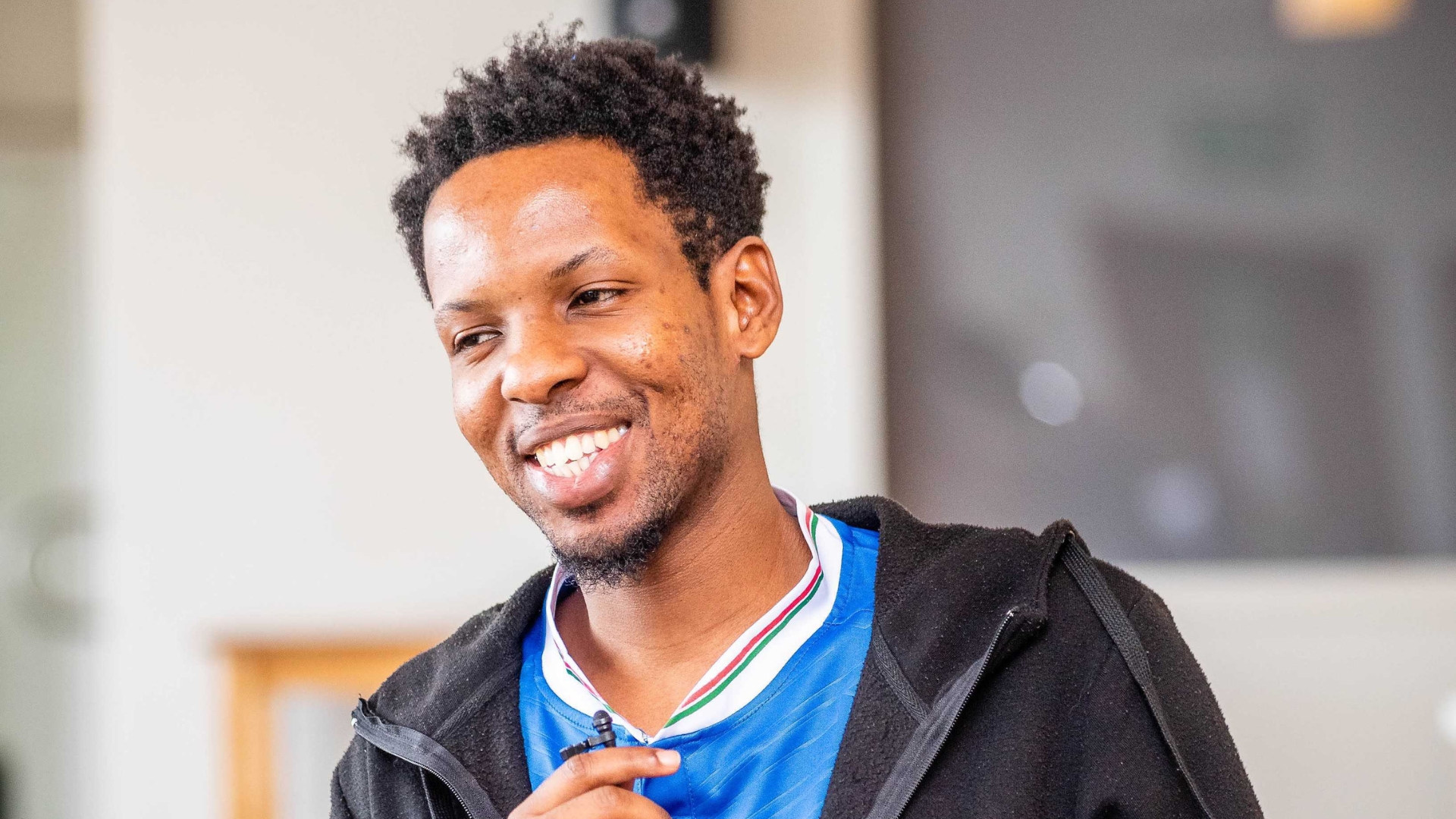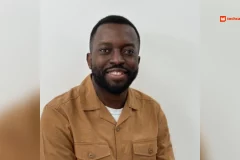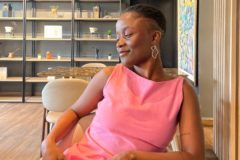Koffi Kelvin is a QA Engineer at GitHub and an Andela technologist. He is passionate about learning and recently graduated from an 11-month leadership course. Koffi is an Andela community champion, supporting and mentoring other community members across the globe, as well as organizing region-wide events for Andela. Outside of tech, Koffi is interested in music, art, and African culture.
Explain your job to a five-year-old.
Imagine you built the world’s most incredible treehouse ever! It has slides, secret tunnels, and a throne made from your softest teddy bear. But before you invite all your friends over, wouldn’t you want to ensure it’s perfect?
That’s where a QA engineer comes in, like the ultimate fort inspector with a magnifying glass! We’re the ones who crawl through the tunnels, bounce on the pillows, and push all the buttons (carefully, of course!) to see if anything is wonky or doesn’t work quite right.
We might find a slide that topples over too easily or a tunnel too small for even the tiniest teddy bear. We’ll then tell the treehouse builders (the programmers) about these funny mishaps so they can fix them and make the treehouse even more epic!
Can you share a memorable experience where your attention to detail in QA uncovered a critical issue in a project?
Off the top of my head, I discovered a critical OS issue when I was at Hewlett-Packard. I was analyzing data, and it revealed a bug; I would upload a particular file to an RGB keyboard app, which then caused the entire operating system to crash. This was precarious because, of course, apps require operating systems to run. We were building the operating system alongside the required apps; one needed the other to perform efficiently. It was a close shave!
Your background also showcases a transition from hands-on QA engineering to customer support. What sparked this shift in focus, and what excites you most about the support role?
QA is a very customer-centric role where, in some instances, during user acceptance testing (UAT), one works with the actual application users to address any issues they might have with the product, making customer support a function within QA. Hence, the transition was as seamless as running from walking.
What skills would you say have been critical to your career growth and trajectory?
Curiosity and tenacity. I remain curious and interested in all functions within and around my work. I’m constantly researching, reading, and learning. This exposes me to as many recent and emerging technologies as possible, which helps keep me sharp and up-to-date. I tend to seek out content from some notable thought leaders within QA like James Bach, who is christened “ The father of Agile testing” through his blog https://www.satisfice.com/blog, and a few others like Lisa Crispin and Janet Gregory ( https://agiletestingfellow.com/): Crispin and Gregory are the founders of the Ministry of Testing, a global community for testers, and co-authors of the book “Agile Testing: A Practical Guide for Testers and Agile Teams.”
I gravitate towards the daunting and challenging tasks many people avoid, which has ensured I’ve learned the most within the team. I welcome a challenge, as it makes me learn the most or fail spectacularly. And when you fail, you learn; you never make the same mistake twice.
You’ve been a digital business mentor for two years now. What would you say is the most rewarding thing about mentoring?
At this point in my career, I would love to give back to the Andela community as much as possible because I realize how privileged I have been in my career journey. This is why I am drawn to mentoring and supporting other technologists. The Andela community is a network of global technologists, and I regularly speak to people worldwide. The most rewarding part is helping others be successful in specific fields using tools that improve the quality, efficiency, and even the quantity of their output.
I guide new members through the Andela talent community landscape, offering support and advice on everything from how to navigate the job engagement process, to questions about tax and – of course – technology and skills guidance.
What would you say are your proudest achievements?
Leading my team through the COVID-19 pandemic, as they became entirely distributed, was immense. It was a traumatic experience, and I gained a lot of bumps and bruises along the way, but we made it through successfully. To help guide the team, I created a daily routine of morning and afternoon standups to ensure we were all on the same page and that we all had a forum to communicate openly with each other. I would also give team members the chance to peer review each other’s work, which led to a drastic improvement in the quality of work that would be sent to me for final review.
In our hyper-connected world, what’s your strategy for maintaining a healthy digital detox?
For starters, having a life beyond my laptop is extremely helpful. In my spare time, I race go-carts and am very interested in motorsports. I also belong to a second community of people not really in the tech space: my church!
What are some of your hobbies or passions that fuel your creativity and energy outside of work?
I always make time for physical activity, regularly playing at the local rugby club and swimming. Recently, I’ve embraced farming, starting with building two beehives, planting some fruit trees (mango and apple), and growing hot chilies. I love being outdoors as much as possible.
Finally, what lessons have you learned from your experiences in QA that have had the most significant impact on your professional growth and development?
Developing my teamwork and collaboration skills during our day-to-day QA operations has impacted my leadership. Most recently, I took an 11-month leadership development program led by renowned scholars including Dr Phidel Baraza (Ph.D.) and Professor Emmanuel Bellon, where I was recognized as one of the course’s top performers. When I first began leadership training, I was taught to lead from the front and demonstrate/explain how my team should perform. But working in QA, I’ve learned how to lead from behind when needed, encouraging and trusting my team to have autonomy over their roles.






















